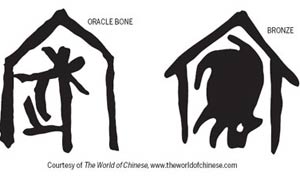Survey: Small businesses struggle to survive along Pearl River Delta
Updated: 2011-10-11 07:57
By Qiu Quanlin (China Daily)
|
|||||||||
GUANGZHOU - Small businesses in the Pearl River Delta have gloomy profit projections for this year due to a number of factors, especially rising production costs and tightened liquidity, a survey has found.
The survey, conducted by the National School of Development of Peking University and Alibaba Group, targeted some 3,000 small businesses in the delta region that have no more than 30 million yuan ($4.7 million) in annual sales revenue and employ no more than 100 workers.
The average profit for small companies in the delta region is predicted to fall by about 30 percent this year due to the harsh domestic and global economic situation, compared with that of 2010, the survey said.
"In the Pearl River Delta region, where small businesses cluster, profits have tumbled and companies are complaining about tough operating conditions. Many believed the situation is even worse than the onset of the last global financial crisis," said Zhou Qiren, director of the National School of Development, Peking University.
More than 70 percent of the surveyed companies found the rising production cost a big challenge to sustaining their businesses, the survey found.
The survey was concluded in September, covering some major manufacturing cities such as Guangzhou, Foshan, Dongguan, Shenzhen and Zhuhai in the delta region.

The average price of raw materials paid by small businesses had risen by 20 percent to 50 percent over 2010, the survey said.
"The price of raw materials for garments has gone up by at least 30 percent this year," said Feng Jiang, general manager of Dongguan Xixi Fashion Co.
"We had to reduce production capacity this year," he said.
Because increased costs, raw material suppliers limited the time an account could remain open, posing large challenges for small companies to maintain a smooth financial flow, he said.
The survey also found that small businesses saw orders decline by 30 percent on average in 2010.
"The orders from overseas buyers have fallen by 50 percent this year due to the uncertain global economic situation. Further, the domestic orders were also substantially reduced because of the country's tightened policy in the housing sector," said Li Shizhong, general manager of Caizhi Wares Co.
The company in Shunde, Guangdong province, realizes annual sales of about 3 million yuan and up to 25 percent of its products are shipped overseas.
"We are suffering a huge loss," Li said.
Because of the reduced orders, only 33 percent of the surveyed small businesses were producing at full capacity and up to 27 percent were working at half capacity this year.
"We had to give up the expansion of our production lines this year. Also, we are thinking of laying off some employees due to our reduced production," said Xiong Shike, a sales manager of Guangdong Enkong Machinery Co, which employs about 300 workers.
The survey also found that up to 50 percent of small businesses in the Pearl River Delta have never experienced equity trading in the local financial market due to limited financial channels.
"Unlike the Yangtze River Delta, there are few financial organizations that provide equity trading for small companies in the Pearl River Delta. Many businesses have to rely on themselves to overcome financial shortages," Zhou said.
China Daily
(China Daily 10/11/2011 page16)









